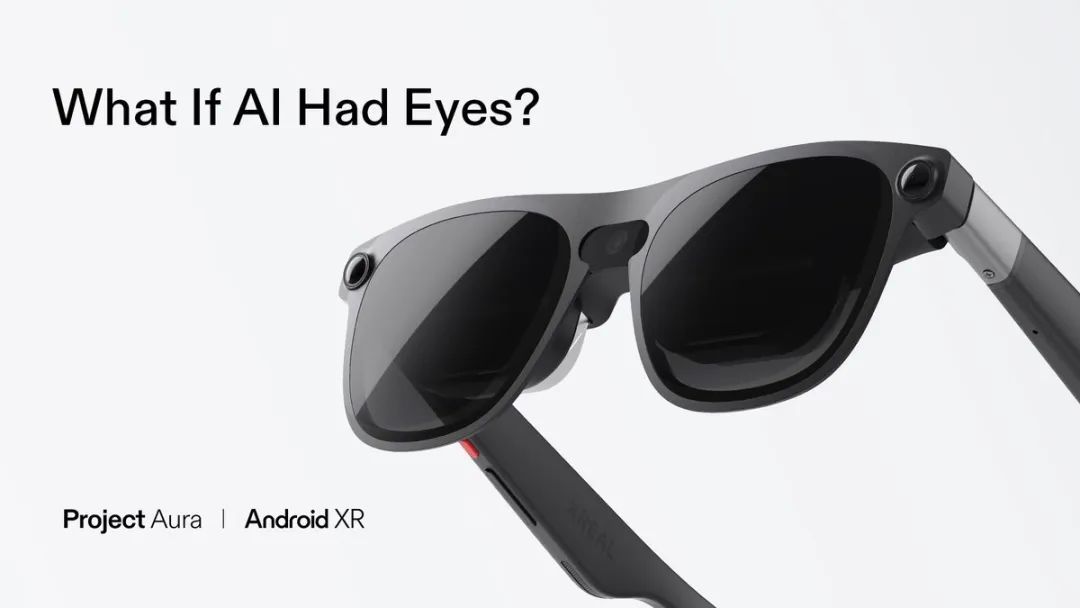The Evolution of Google Project Aura - The Next Revolution in AI Glasses!

In the tech world, some products become instant hits while others fade away quietly. Ten years ago, Google Glass's brief moment in the spotlight left us with mixed feelings; today, Google is making a comeback with Project Aura, redefining our digital world with new intelligent concepts and AI technology.
From Google Glass to Project Aura: A Long-Planned Evolution
Remember when Google Glass made its stunning debut? Back then, everyone thought these small glasses that could project the virtual world into reality were the future. However, its overly avant-garde design and price eventually made it a "concept product" in tech history. Ten years later, when people had almost forgotten about smart glasses, Google, partnering with Chinese AR company Xreal, is making a comeback with Project Aura.
This return is clearly well-prepared. Project Aura not only addresses all the pain points of the previous generation but also incorporates cutting-edge AI technology, attempting to create a new computing platform.
Technical Decoding: When AR Glasses Meet AI
Project Aura's biggest innovation lies in its "tether computing" system. Think of it as a computing distribution system: the glasses only handle display and some sensors, while all digital computing is processed by an external small black box (compute puck). This solves both the severe heating issues of traditional AR glasses and allows for easy computing power upgrades without replacing the entire glasses.
More noteworthy is its Gemini AI system. It's not simply porting phone functions to glasses, but completely changing our interaction methods:
- When you see a restaurant facade, AI can provide ratings and signature dish introductions
- When looking at an unfamiliar artwork, AI can tell you the creator's life story
- During business meetings, AI can provide real-time translation and key summaries
"It's like giving your vision a super brain," as one early tester described it.
Design Philosophy: How to Make Technology Blend into Life
Google has clearly learned its lesson this time. Project Aura looks like an ordinary pair of sunglasses, completely free from the abruptness of tech products. The lightweight frame weighs less than 40 grams, lighter than regular prescription glasses. This "invisible" design philosophy allows technology to truly blend into people's daily lives, rather than becoming a "cyborg label."
However, challenges remain: the display area is still limited by technology, covering only a small portion of the field of view. Additionally, while the external computing module is small, it's still an accessory that needs to be carried. These factors mean Project Aura isn't yet the ideal ultimate form, but it's currently the closest to practical implementation.
Market Competition: Can the New Solution Disrupt the Existing Landscape?
In the AR field, each giant is taking a different path:
- Apple Vision Pro focuses on ultimate experience
- Meta Orion emphasizes social attributes
- Google takes a different approach, focusing on ecosystem building
Project Aura's smartest strategy is that it's not just a hardware product, but a new platform for developers. Through open APIs and development tools, Google hopes to replicate Android's success model in the AR field. In other words, it's not building a product, but constructing an ecosystem.
Future Thinking: Will Glasses Become the Next Computing Terminal?
Each wave of new technology raises an ultimate question: will this time be different? From PCs to phones, we've experienced several computing platform transitions. Now, are smart glasses really ready to take this baton?
Project Aura's answer is yes. It not only wants to change how we access information but also attempts to redefine our relationship with the digital world. When AI can understand and predict our needs, when we only need to look somewhere to get rich information - this change in interaction methods might be more profound than we imagine.
Conclusion: A Conceptual Revolution About the Digital World
Ten years ago, Google Glass seemed like a product from science fiction movies, while today's Project Aura is the key to turning science fiction into reality. It's not just a product but represents our thinking about the direction of technological development:
- How can technology better serve humanity?
- How can we find the perfect balance between the digital and real worlds?
- Do we really need a permanently online digital twin world?
What are your thoughts on these questions? Would you be willing to be among the first to try Project Aura? Feel free to share your views in the comments section.
分享文章
3篇相关文章
A New XR Education Era: How Samsung Galaxy XR Reinvents Enterprise Training
2025-11-14
Samsung Human Resources Development Institute adopts Galaxy XR, fusing AI with extended reality to redefine corporate learning.
When Apple Builds Walls, Samsung Chooses to 'Join Forces with Google': The XR Ecosystem War Begins!
2025-10-15
Samsung joins forces with Google, planning a disruptive XR comeback from a completely new ecosystem perspective.
Oculus Founder Returns to the Battlefield: This XR Helmet Gives Soldiers ‘Superhuman Vision’
2025-10-14
Palmer Luckey’s Anduril, in collaboration with Meta, unveils the military XR headset EagleEye, aiming to transform battlefield awareness and combat capability through AI and mixed reality—signaling a profound shift in how wars may be fought.